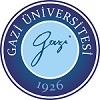
Send us your opinions, requests and evaluations.
Services Provided to Patients In the Department of Neurology
Polyclinic
General Neurology Polyclinic
Headache Polyclinic
Neuropathic Pain Polyclinic
Dementia Polyclinic
Epilepsy Polyclinic
Movement Disorders and Parkinson Disease Polyclinic
Multiple Sclorosis Polyclinic
Neuromuscular Diseases Polyclinic
Cerebrovascular Diseases Polyclinic
Botulinum toxins applications
•Inpatient service
•Intensive care and intermediate intensive care
•EEG laboratory
•EMG laboratory
•Transcranial Doppler Ultrasound (TCD)
Gazi University School of Medicine Epilepsy Center
The center was established within the pediatry service with pediatric neurology in 1997. Later in 2010 it was moved to it’s new place as a Video-Monitorization Unit. It constitutes 3 private rooms where patiets are accomodated, an information record station and an examination room. Continuous video/EEG monitorization for 24 hours is practiced in order to maintain a definitive diagnosis between pseudoseizures and epilepsy in patients who were examined in Adult Neurology or Pediatric Neurology Polyclinics with medical stories of seizures who are transferred from Ankara or from out of the city. In addition, pre-operational examinations are performed on patients which are planned to have an epilepsy operation in order to determine the seizure center.
In the center, 1 academic member from the department of neurology and 1 academic member from the department of pediatric neurology, an instructor from both departments, a technician and 1 or 2 rotational doctors serve full time.
EMG laboratories
In the EMG loboratories research assistants from the department of neurology, FTR assistants, and if the laboratory is available, neurology specialists form other centers are schooled. One EMG technician serves in our laboratory.
Here are some of the tests performed in the laboratory :
Nerve conduction studies
Needle EMG
Consecutive Stimulation
Quantative EMG
Single leaf EMG
Sympathetic skin responses
RR interval change
Short latency sensory stimulated potential records
Cerebrovascular Disorders Polyclinic
The diagnosis, treatment and monitoring of cerebrovascular disorders is performed by an academic member every Thursday for a full day. Transcranial Doppler Ultrsound practices have also entered the routine practice group.
Demantia Polyclinic
The diagnosis, treatment and monitoring of dementia patients are performed on Fridays for a full day.
Epilepsy Polyclinic
The diagnosis, treatment and monitoring of epilepsy patients are performed every Tuesday by two academic members.
Movement Disorders Polyclinic
Since October 2004, the diagnosis, treatment and monitoring of Parkinsons disease and neurological illnesses that follow movement disorders are performed every Monday for a full day. An academic member and a research assistant serves at the polyclinic. Patients which are transferred from the general neurology polyclinik are evaluated ate the Movement Disorders unit after getting an appointment. In addition, depending on the monthly programme, botulinum toxin injections are performed by the academic member or by the research assistant under his supervision to treat various unvoluntary movements.
Multiple Sclerosis Polyclinic
The diagnosis, treatment and monitoring of multiple sclorosis patients are performed by 2 different academic members every Tuesday and Wednesday.
Neuromuscular Diseases Polyclinic
Every Wednesday for a full day, individuals with neuromuscular diseases who have been diagnosed in our clinic are monitored. Two academic members and a research assistant serves in this polyclinic.

Send us your opinions, requests and evaluations.